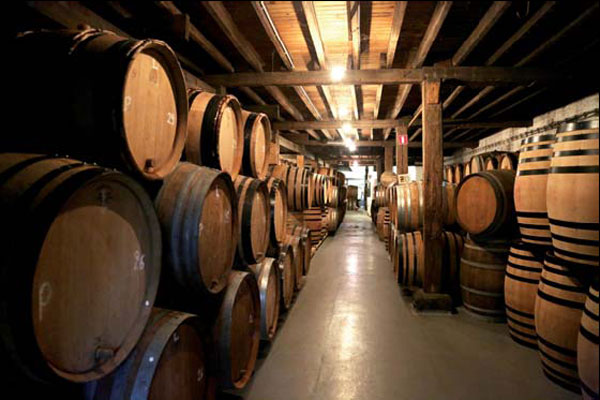Belgian brews no small beer in China
Updated: 2014-01-10 10:19
By Tuo Yannan (China Daily Europe)
|
|||||||||||
|
Beer barrels at the Belgian family brewery Brasserie Cantillon Brouwerij. |
Pioneering move
Coincidentally, 1997 was the same year Yu Xiaoning shipped his first container of Belgian beer to China, little knowing that it would lead to a business worth 300 million yuan ($49.5 million; 36.4 million euros).
Yu says his association with Belgian beer began when he was looking for ways to offset losses from selling Belgian chocolate in China.
"Chocolate sales during the summer months were particularly bad in China. My company (Vandergeeten Commerce and Trade Co Ltd) felt that we should try to diversify the product mix by adding Belgian beer. There has been no looking back."
Yu, a former government employee, says that in the initial years selling Belgian beer was not that easy, as not too many people were aware of the drink. "The first bottle of Belgian beer that we sold in Beijing was to a bar in the Sanlitun area called Hidden Tree."
Yu's company has grown from strength to strength. It accounts for more than 2 million liters of the 3.5 million liters of Belgian small beers imported to China every year.
"We import nearly 300 kinds of beers from Belgium," Yu says, adding that most of the products fall in the premium craft beer category.
According to Yu, though the niche beer market is still small, it has started to bubble with activity.
"Craft beers from Belgium are priced at around 80 yuan for a 330 ml bottle, compared with just 4 yuan for domestic brands. But demand has been growing steadily from the well-heeled customers," he says.
Yu says that his company has a presence in most of the major Chinese cities and will look to further expand its reach.
Overall beer market
China overtook the United States as the world's largest beer market in terms of consumption in 2003. It accounts for a quarter of all the beer consumed globally and is expected to deliver more than 40 percent of the industry's growth this decade, according to market researcher PlatoLogic.
According to market researcher Euromonitor International, beer sales in China rose 4.8 percent last year to 47.5 billion liters. The institution also predicted that by 2016 beer consumption could reach 61 billion liters.
Even as the small Belgian beer makers are connecting with premium customers, big international brewers such as Anheuser-Busch InBev are also expanding their presence in the mass market.
The Belgian-based company sold 5.75 billion liters of beer in China in 2012 and had a 13.4 percent market share, says data provided by AB InBev China. It is also the third-largest brand in the Chinese beer market after local brands Snow and Tsingtao.
ABI's brands entered China in 1984 by providing technology transfer to Zhujiang Brewery in Guangzhou. Currently it has four major brands in China - Stella Artois, Budweiser, Harbin and Sedrin.
With 40 breweries and more than 20,000 employees, the company does not have the kind of problems that plague small beer makers. Its challenges are more to do with the changing tastes, sources say.
"Changing tastes is a big problem in China. Chinese people prefer mild beers, while in the West the demand is more for bitter beverages," says Michel Doukeris, zone president Asia-Pacific of AB InBev.
According to the company, beer volumes in China grew by 8.3 percent during the third quarter of 2013 and accounted for 25 percent of the global beer volumes.
However, according to Bloomberg News, China's annual per capita beer consumption stood at 35 liters, less than 50 percent of the level in the US. Chinese consumers are also not that keen on paying more for beer, unlike their peers in the US or Japan, the report said.
However, industry experts say that with the average price of beer in China just about $1.20 per liter in 2012, compared to $3.70 in the US and $8.40 in Japan, there is enough room for growth. UBS AG said in a recent report that by 2016 China will become the third-largest profitable market for beer firms.
What this also means is that more and more containers of Belgian beer will continue to be shipped from Antwerp to Chinese ports in the future.
tuoyannan@chinadaily.com.cn
( China Daily European Weekly 01/10/2014 page19)
Today's Top News
At least 16 dead in E China factory fire
Hollande responds to affairs reports
Li offers Bulgaria help with big projects
Xi calls for reform to fight graft
China, Italy agree to boost co-op
S. China Sea rules no threat to peace
Park urges Japan to face history
Man says loss of face pushed him to kill six
Hot Topics
Lunar probe , China growth forecasts, Emission rules get tougher, China seen through 'colored lens', International board,
Editor's Picks

|

|

|

|

|

|






